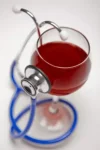5 Ways to Reduce Brain Fog After Drinking Alcohol
April 5, 2021

Answer these questions and you can start your alcohol addiction recovery journey with a clear mind. Alcohol brain fog is just as common, and it can be devastating for the recovery process. Spending time in nature has been shown to have many benefits for brain health. In addition to getting some sunlight, another great way to get rid of brain fog is to spend time in nature.
- At this point, however, the recovery paths of alcoholic subgroups diverge, based primarily on their age.
- Ohio State Health & Discovery brings this expertise together to deliver today’s most important health news and the deeper story behind the most powerful topics that affect the health of people, animals, society and the world.
- We’ve all heard the term “brain fog” thrown around, but when it comes to alcohol, this fog can become a lingering haze that disrupts your life.
- The duration of alcohol-related brain fog can vary depending on several factors.
- The Wernicke-Korsakoff syndrome is a type of brain damage that is usually caused by overconsumption of alcohol.
- The more prolonged and heavier the alcohol use, the greater the probability that the brain fog will remain for a longer time.
A Timeline for the Restoration of Cognitive Abilities after Quitting Alcohol
- The Center for Women’s Health provides personalized care for women across their lifespans.
- A study published in 2014 found that heavy drinking can speed up memory loss in early old age in men.
- In addition, information presented to patients should be concrete rather than abstract; active strategies that emphasize practice may be used.
- A person should check themselves into an alcohol detox program and receive medication to wean themselves off drinks.
- That number increased to four or five years shorter for people who had 18 drinks or more per week.
- However, seeking help and support is essential if the symptoms persist or interfere with daily life.
While the Centers for Disease Control and Prevention (CDC) recommends that you exercise for 30 minutes per day, any kind of movement counts. Creative activities will not only take your mind off of unproductive thoughts but also provide an overall sense of serenity. You will be immersed in a state of tranquility, as long as you don’t judge yourself during the process. Create for the sole purpose of creating and leave any desire for perfection behind.
Hormones and brain function
“I would have never known I was in perimenopause if hadn’t stopped drinking,” Christy says. Because the symptoms of a wine-fuelled night are similar to perimenopause symptoms. If your aging loved one has ongoing cognitive issues or you’re concerned about brain fog, talk with their doctor to develop a plan. Your mind is in a state of buffering, like waiting for a video to load with an unstable internet connection.
Liver damage
- If you are experiencing any of these symptoms, it is essential to speak to a medical professional.
- In other words, correct information may be placed in a file drawer, but an inadequate label on the file might make retrieval of this information difficult.
- You might have heard people comparing your brain to a computer, but the truth is a lot more complicated than that.
- It’s also important to note that if an individual experiences brain fog after quitting drinking, it’s possible that they may experience other withdrawal symptoms as well.
Walking is an excellent form of exercise that has many benefits for brain health. You can also try using a light therapy box that emits bright light to help improve your brain function. Also, be sure to drink plenty of fluids before, during, and after exercise, as dehydration can actually worsen brain fog.

By committing to long-term sobriety, you can give your brain the chance to heal and witness the positive changes in your brain fog symptoms. It’s like giving your brain a breath of fresh air after being submerged underwater for an extended period. Alcohol dependence happens when our brain chemistry adapts to the presence of alcohol, leading to a reliance on it to feel ‘normal’. This dependence plays a significant role in the intensity and duration of brain fog during withdrawal.
- Therefore, it would not matter whether the cognitively impaired alcoholic could or could not learn the behavior taught by the treatment program.
- Think about what your blocks are and why you feel events might not be as fun without alcohol.
- Experience-dependent recovery is by no means unique to alcoholism research.
- There is no set of symptoms that all people with brain fog experience.
Repeat testings are necessary to ensure that differences between the supposedly matched groups are not the result of unintended discrepancies between the groups (e.g., differences in premorbid intelligence). The difference in the rate of improvement between the alcoholics and the nonalcoholics is then an indication of the “true” recovery of cognitive functioning. Alcohol researchers do not know whether cognitive impairments impede alcoholism treatment. Can a cognitively impaired alcoholic readily absorb all the information that is usually imparted during treatment?
Patterns of Time-Dependent Recovery
By 5 years, all other cognitive functions have returned to anormal level state. In virtually all cases, no matter how severely alcohol-dulled you feel now, a few years of abstinence willalmost completely reverse this alcohol brain fog cognitive damage. Doctors have not yet established a safe level of alcohol consumption during pregnancy, so the best strategy for preventing fetal alcohol syndrome is to abstain altogether from alcohol at this time.
